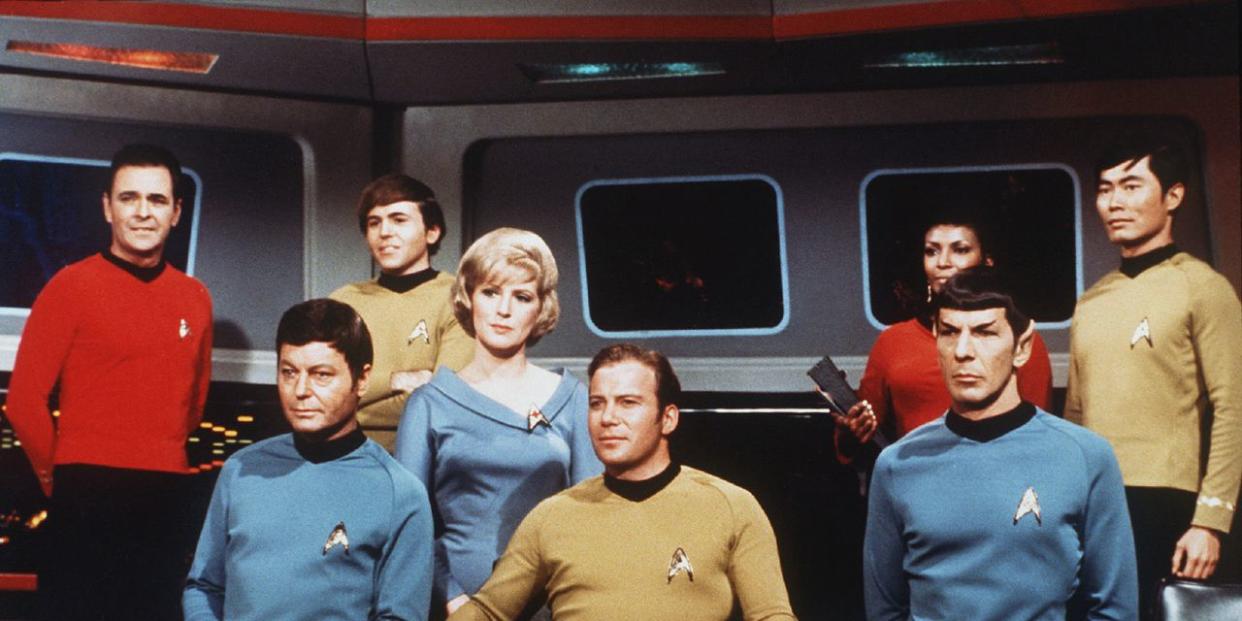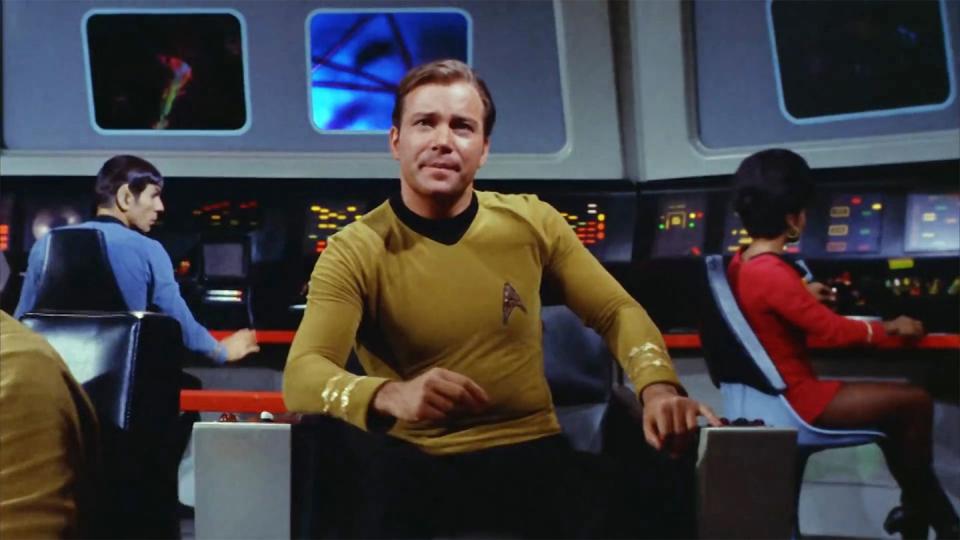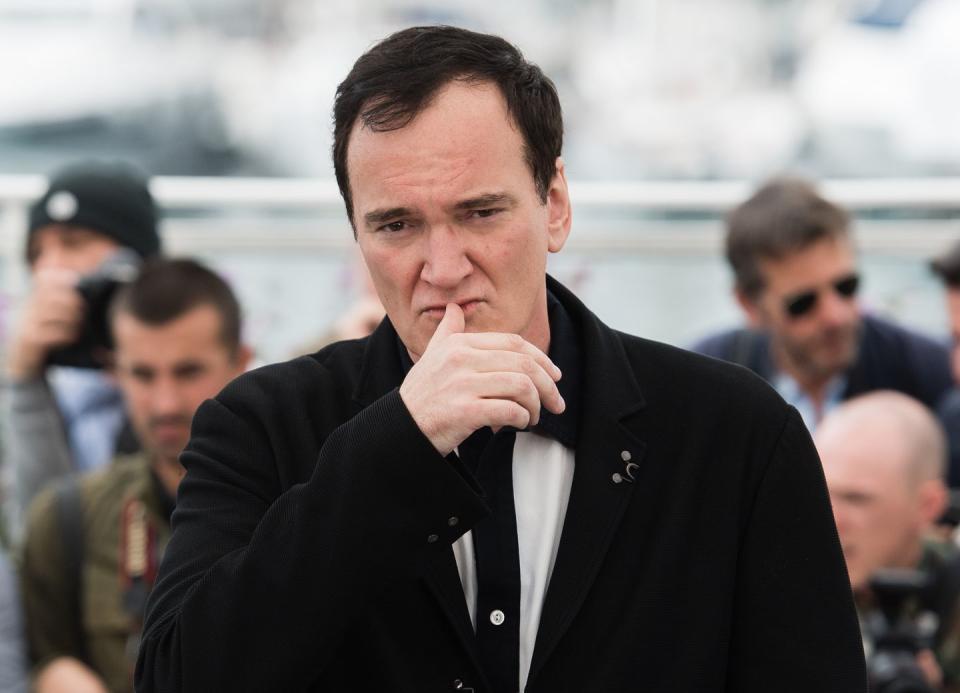An R-Rating Is the Last Thing Star Trek Needs Right Now

Back in December 2017, reports surfaced that Quentin Tarantino had pitched a Star Trek movie. The idea that the creative mind behind Kill Bill and Pulp Fiction would soon be unleashed upon the Star Trek universe tickled a part of my Trekkie brain I didn't know existed.
But there was a second part to the rumor, something that anyone knowing Tarantino's work would come to expect: the film would also be R-rated.
This long-standing rumor became a bit more real this week when Tarantino once again confirmed that he was still working on a Star Trek project and that a scripted was already written, saying, "Oh yeah! It's an R-rated movie. If I do it, it'll be R-rated."
Unfortunately, an R rating is the last thing Star Trek needs right now.
Hopeful Sci-Fi Is Hard to Find

Star Trek was always somewhat of an outlier in the world of science fiction. Star Wars has "war" in the name (a conflict still ongoing 40 years later), Alien paints space as a place filled with inaudible screams, and even Wall-E doesn't illustrate the most flattering portrait of space-faring humans.
But Star Trek was different. The entire show rested on the premise that humanity had overcome its base failings, like war, poverty, reckless consumerism, and every other -ism out there, and had joined the galaxy as one human family, a cog in an even greater alliance called the United Federation of Planets. We still had some demons in our closet (and Klingon and Romulans would always prove troublesome), but the future of humanity looked bright.
In fact, at least for me, it was this positive tone that made Star Trek so compelling. Not so much that it was better than other franchises, it was just different-an escape from the usual doom-and-gloom, action-hungry sci-fi that often makes its way to theaters.
It's the same phenomenon that makes Steven Spielberg's E.T. and Close Encounters of the Third Kind-two of the very few alien films out there that are not about subjugating/destroying/infiltrating the human race-some of the best sci-fi movies ever made. Sometimes, it's ok to have a brighter outlook on things.
But then it all started to change.
Reverse Course
For whatever reason, Star Trek has been slowly retreating from this positive perspective. Of course, the change is obvious when looking at Star Trek's latest show, Discovery, where gratuitous violence (and terrible writing) is commonplace. But the seed was really planted way back in 1996 with First Contact.
Until First Contact, Star Trek was still mostly Star Trek. Generations and Insurrection were weird films, but they tried to tackle some heady topics, albeit poorly. While arguably a better film overall than the two that came before it, First Contact felt the beginnings of a different kind of Star Trek. It was more about explosions and action than anything particularly meaningful or deep felt, and why writers thought turning the philosopher captain Jean-Luc Picard into some rip-shirt action hero remains a mystery to this day.
Next came Nemesis in 2002. That film really doesn't feel tonally far-removed from J.J. Abrams' 2009 reboot, in which the director turns the Star Trek action up to 11. Then add that horrific Spock scene (you know the one) from Star Trek: Into Darkness and the first two seasons of Discovery to the pile, and you have a franchise that's nearly unrecognizable from the 30 years of stuff that proceeded it.
It's because of this slow change (or decline, depending your point of view) that Tarantino's R rating feels like a tangible symbol illustrating Star Trek's hard turn from hopeful sci-fi some 20 years in the making.
Reasons to Hope

But not everything is bad news. Tarantino has earned tons of goodwill with a deep catalog of critically acclaimed films. It's hard to deny that seeing a Star Trek film considered for an Oscar would be a huge achievement.
Tarantino also has a deep love for the franchise that's he's expressed in several interviews. In fact, one of his ideas-originally pitched during a radio interview-focused on The Next Generation, with a premise I'd definitely want to see on the big screen:
"In thinking about the concept even further though, one of the best Star Trek episodes ever was in Next Generation...["Yesterday's Enterprise"] is one of the great-not just space stories-but they way it dealt with the mythology. That actually could bear a two-hour treatment."
Finally, "R rating" can mean many different things. While some seem to think that F-bombs are incoming, Karl Urban, who plays Leonard "Bones" McKoy in Abrams' Trek series, said that he had read Tarantino's script and that "you shouldn't worry that it is going to be full of obscenity and stuff. He wants an R-rating to really make those beats of consequence land. If it's not PG, if someone gets sucked out into space, which we have all seen before, we might see them get disemboweled first...it allows some breadth...gives him some leeway to do that."
Rated R for "Space Death Realism" is much more compelling than Rated-R for "Kirk Swears Like a Sailor."
But one thing is certain: Tarantino's Star Trek (if it ever enters production) will be a huge moment for the franchise. It will likely determine if there's still room left in our galaxy for hopeful and complex science fiction, or if we're doomed to lose Star Trek to the mindless action that plagues every other forgettable sci-fi film.
('You Might Also Like',)

